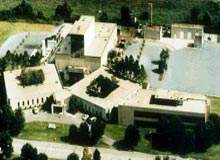
A gas condensate refinery with a planned output of 120,000 barrels per day (bpd) was opened in the United Arab Emirates in 1999. The refinery in Jebel Ali, Dubai, increased the total capacity of the UAE by about 60%.
The ENOC Jebel Ali oil refinery is the UAE’s fourth and smallest. It was built after Ruwais and Um al-Nar in the emirate of Abu Dhabi, which have a combined capacity of 505,000bpd.
The emirates of Sharjah and Fujairah also have refineries, each with a potential capacity of 80,000bpd. The refinery is operated by the Emirates National Oil Co (ENOC), which is owned by the Dubai Government.
Investment in the plant totalled $500m.
Construction and expansion
The Jebel Ali refinery took two and a half years to complete and covers 500,000m2. The works included pouring 22,600m³ of cement for the foundations, structures and a pre-cast pipe rack.
Over 15,000t of equipment was installed and 223km of electric cables and 155km of instrument cables were laid. The construction was completed on time and within budget.
In September 2010, ENOC completed an $850m upgrade at the Jebel Ali refinery. It was aimed at increasing the operational capacity from 70,000bpd to 120,000bpd. In 2010 the refinery processed 108,000bpd of crude at 90% capacity.
Funding for the ENOC refinery
A consortium of four banks provided a loan of $170m to fund the project. ANZ Grindlays Bank, Barclays Bank, Emirates Bank International (EBI) and National Bank of Dubai (NBD) each provided $42.5m.
ENOC plant and condensates
The ENOC plant converts condensates from Qatar, Iran and Australia into LPG, naphtha, jet fuel, diesel and fuel oil. The naphtha, a total of about 66,000bpd, is exported for petrochemical use in South East Asia, and the rest of the liquids are sold to the domestic market.
Condensate distillation units
The ENOC Jebel Ali plant has a pipeline link to the fuel tank farm at Dubai International Airport to provide a constant supply service. The plant is centred on two 60,000 barrels per stream day condensate distillation units and five merox sweetening units.
Its storage capacity is in excess of four million barrels of condensate feedstock and petroleum products. Feedstock is acquired from a number of different suppliers within the gulf region and comes to the plant by pipeline or by ships with a capacity of up to 120,000dwt.
Plant control system
A modern digital control system controls the operating plant, with every critical function and variable closely monitored and adjusted as required. It has its own power source with two efficient 10MW turbo generators. The process stream is supplied by a heat recovery system.
Sulphur recovery processes
To minimise sulphur emissions, the sulphur recovery unit processes the streams, which are rich in hydrogen sulphide from amine treating and sour water stripping.
Two sulphur plants, each with 100% of the capacity required, provide total protection, even if one plant is completely shut down.
A neutralising unit treats the sulphidic caustic waste from the LPG and naptha, kerosene and diesel merox. This renders the caustics suitable for disposal in the effluent treating plant, which is designed to handle and treat aqueous effluents before disposal according to local environment regulations.
Contractors for the ENOC Jebel Ali refinery
The ENOC refinery was developed by MW Kellogg under EPCL using front end engineering and design (FEED). Site development and tank foundation works were handled by Dubai-based Al Futtaim Wimpey.
The lump sum engineering, procurement and construction contract worth $130m for the process and off-site facilities was carried out by Technip of Italy, which was selected from a number of potential contractors from Europe, America and Japan.
Various local contractors, including Chicago Bridge and Iron, Eastern Anstalt and Al Futtaim Tarmac, were used for engineering, procurement and construction management of the tanks, major buildings and facilities outside the plant fence. Mott McDonald handled the engineering, procurement and construction management of all local contract works.
The FEED and engineering, procurement and construction management contract for the refinery upgrade project was awarded to Foster Wheeler. Al Futtaim Carillion was the contractor for civil works. GE Oil & Gas supplied a steam turbine power generation unit and eight compressors.



